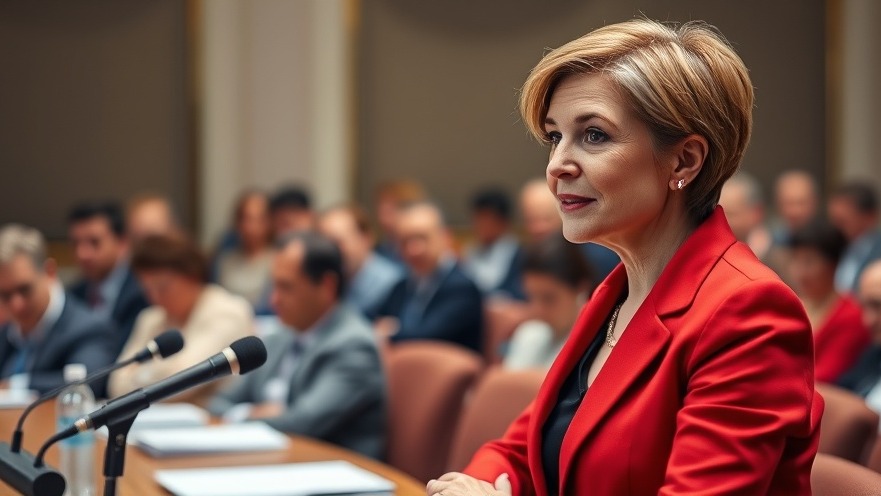
The Crisis at Voice of America: National Security Risks Unveiled
Recent revelations from Carrie Lake, Senior Advisor at the U.S. Agency for Global Media, have sparked significant concern over the integrity and security of Voice of America (VOA). In a testimony before Congress, Lake detailed shocking security lapses that raise the stakes for America’s national security.
In 'Kari Lake Details 'Totally Inappropriate' She Was Shocked To Find Voice Of America Had Published', the discussion dives into critical concerns about the integrity of the U.S. Agency for Global Media, leading us to expand on significant national security implications.
Mismanagement and Political Bias: A Deep Dive
Lake painted a stark picture of VOA’s management, highlighting issues of deep-rooted political bias and mismanagement within the agency. She pointed out that the agency’s leadership continues to disregard fundamental security protocols, jeopardizing the nation’s safety. The troubling findings include employing individuals with connections to hostile nations, which Lake termed "a serious threat to our national security." These actions are quite alarming, especially considering that VOA should serve as a reliable source for accurate information about the U.S. and its interests.
Security Vetting Failures: The Government's Oversight
One of the critical issues presented was the faulty security vetting process that allowed foreign nationals, some potentially hostile to the U.S., to gain high-level access to sensitive information. Lake stated that workers with fake identities and social security numbers could secure employment and clearance to work at the agency. This raises significant concerns about the adequacy of the current vetting mechanisms in place and invites further scrutiny into how U.S. agencies handle hiring practices. The potential risks of foreign spies infiltrating the system cannot be understated in a world where information security is paramount.
A Call for Reform: Is Change Possible?
Lake’s testimony underscores an urgent need for reform within the U.S. Agency for Global Media and its key divisions. With the support of the Trump administration and an executive order aimed at narrowing the agency’s scope, she is hopeful for impactful changes. However, many are left questioning the path to reform when faced with such entrenched problems that have spanned multiple administrations. The call for a complete overhaul and accountability in these operations will be critical for securing American interests abroad and restoring public trust.
Public Perception and Accountability: Addressing the Issues
The concerns raised by Lake have not only ignited conversations on Capitol Hill but also among the general public who rely on fair and accurate news coverage. If the VOA is to be a credible source of information, it must adhere to higher standards and maintain a commitment to neutrality. The revelations regarding political bias, such as airing content that glorifies controversial figures or downplays threats against America, highlight the need for an editorial review process that weeds out bias and helps restore the agency's integrity.
Keeping the American People Informed
The Voice of America represents a critical component of U.S. foreign diplomacy and outreach efforts. As Lake’s testimony illustrates, there is an imperative for the agency to operate under principles of accountability, transparency, and most importantly, security. If America is to navigate the complexities of today’s geopolitical landscape, the integrity of its information platforms must be safeguarded from the pitfalls of mismanagement and bias.
Lake concluded her statement with a forceful commitment to reform, emphasizing that it is crucial for the American taxpayer, upon whom the funding of such operations relies. As these discussions unfold, it is vital for all stakeholders, especially citizens, to remain informed and engaged in the conversation about national security and the role of the U.S. government in media.
 Add Element
Add Element  Add Row
Add Row 



 Add Row
Add Row  Add
Add 


Write A Comment